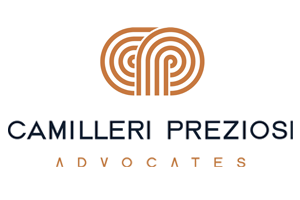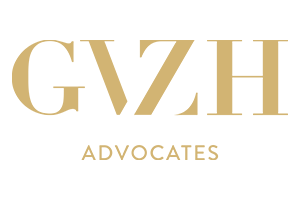Control of hate speech – Eva Glawischnig-Piesczek vs. Facebook Ireland
The recent case of Eva Glawischnig-Piesczek vs. Facebook Ireland Limited delivered by the European Court of Justice on the 3rd of October 2019, dealt a major blow to Facebook as it ruled that European national courts may order online platforms to erase defamatory content worldwide, therefore, not only in their own country but also outside also their jurisdiction. This case, therefore, extends the reach of the country’s internet-related laws beyond its own borders. This case has been met with a number of different opinions, with some favouring the decision while others are still quite sceptical about the potential implications of this decision. The Austrian daily newspaper ‘Der Standard’ stated that this judgement is “an important step against intimidation” with women very often being the main target of hate attacks, leading them to no longer wanting to subject themselves to public discourse. On the other hand, the British daily newspaper ‘The Financial Times’ believes that this ruling may “endanger freedom of opinion” due to the fact that the increased pressure being exerted on social media platforms by regulators, may lead these social media platforms to interpret what is equivalent to hate speech in a much broader manner.
In order for one to understand the potential implications of this case, one must first understand the facts and legal principles discussed within the case itself, as well as in the main proceedings. The plaintiff in this case, being Ms. Eva Glawischnig-Piesczek, was a member of the ‘Nationalrat’, the National Council of Austria, chair of ‘The Greens’ Parliamentary Party, and the federal spokesperson for that party. The defendant, Facebook Ireland, on the other hand, operates a global social media platform for users located outside the United States of America and Canada. On the 3rd of April 2016, an article from the Austrian online news magazine ‘oe24.at‘ titled “Greens: Minimum income for refugees should stay” was shared by a Facebook user on the plaintiff’s personal page, with the effect of creating a thumbnail of the original site, containing the title and a brief summary of the article, as well as a photo of the plaintiff. A comment was also published in connection with the article by the user, which was found to be harmful, insulting and defamatory to the reputation of the applicant. Subsequently, on the 7th of July 2016, the plaintiff sent a letter to Facebook Ireland, requesting that the comment be deleted. Facebook Ireland failed to withdraw the comment, leading the plaintiff to bring forward action against Facebook Ireland before the Handelsgericht Wien, the Austrian Commercial Court. On the 7th December 2016, the Court proceeded to issue an interim order directed towards Facebook Ireland, by means of which it was ordered to cease and desist from publishing photographs showing the applicant when the accompanying text contained words equivalent to those mentioned in the initial defamatory comment. This had to be done with immediate effect and until the proceedings had been concluded. This resulted in an impromptu reaction by Facebook Ireland which disabled access solely in Austria to the content initially published.
Following this, an appeal was lodged before the Oberlandesgericht Wien, the Higher Regional Court in Austria which upheld the initial order directed towards Facebook Ireland in regards to the allegations made. The Court, however, also held that the spreading of allegations of equivalent content had to be stopped only with regards to those brought to the knowledge of Facebook Ireland by means of complaints by the applicant or third parties. This decision was based on Paragraph 78 of the Law of Copyright in Austria, and Paragraph 1330 of the General Civil Code of Austria. Paragraph 1330(1) states that anyone who has sustained harm or loss of profit as a result of damage to his or her reputation is entitled to put forward a claim for compensation. Subparagraph 2 then goes on to state that the same provision shall apply in the case when a person reports facts which cause prejudice to the reputation, material situation and future prospects of a third party in the case when such person knew or ought to have known that such reports were incorrect. Furthermore, Paragraph 78(1) states that images representing a person must not be publicly displayed or distributed in a way that makes them accessible to the public, when such images harms the legitimate interest of the person, or in the case in which the person has passed away, or the images harm the legitimate interest of a close relative. In regards to these provisions, the Court stated that the published comment contained statements that caused excessive harm to the reputation of the plaintiff and implied that she was involved in unlawful conduct, however, without proving the slightest evidence in that regard.
Both parties lodged a second appeal in front of the Austrian Supreme Court. The Supreme Court, which was approached in order to decide whether the aforementioned cease and desist order extended to statements with either having identical wording or equivalent content which the host provider is not aware of, stated that in accordance to its own jurisprudence, this obligation must be proportionate in the case in which the host provider was already aware that the interests of a person have already been harmed at least once as a result of another users post, and as a result of this, the risk that other infringements may be committed is thus demonstrated. The Supreme Court, however, faced an issue in the fact that the dispute raised questions regarding the interpretation of EU Law, and as a result, decided to refer the following questions to the Court of Justice for a preliminary ruling:
“1. Does Article 15(1) of Directive [2000/31] generally preclude any of the obligations listed below of a host provider which has not expeditiously removed illegal information, specifically not just this illegal information within the meaning of Article 14(1)(a) of [that] directive, but also other identically worded items of information:
– worldwide
– in the relevant Member State
– of the relevant user worldwide
– of the relevant user in the relevant Member State?
2. In so far as Question 1 is answered in the negative: does this also apply in each case for information with an equivalent meaning?
3. Does this also apply for information with an equivalent meaning as soon as the operator has become aware of this circumstance?”
The first two questions, according to the Advocate General, should be examined together. Article 15(1) of Directive 2000/31 provides that “Member States shall not impose a general obligation on providers … to monitor the information which they transmit or store, not a general obligation actively to seek facts or circumstances indicating illegal activity.” The referring court, being the Austrian Supreme Court, refers to the European Court of Justice to determine the material and personal scope of a monitoring obligation which may be imposed, in the context of a ban, on a host provider, without a general monitoring obligation which is prohibited by Article 15(1).
Article 15(1) of Directive 2000/31 of the European Parliament and of the Council of 8th June 2000, on certain legal aspects of information society services must be interpreted as meaning that it does not exclude a host provider that operates a social network platform from being made to seek and identify, among all of the information spread by users of that platform, the information identical to the information that has been characterised as illegal by a court in the context of an injunction. In such a case, a host provider may be ordered to seek and identify information equivalent to that characterised as illegal, only in a case that the information is distributed by the same user that organically distributed the initial information. The Court of Justice also stated that any Court adjudication on the removal of such information must ensure the precision, clarity and foreseeability of the effects of its injunction. Therefore, it must evaluate the fundamental rights involved, and take into consideration the principle of proportionality. With regards the territorial scope of a removal obligation imposed on a host provider in the context of an injunction, it is important to note that such obligation is not regulated by either Article 15(1) of the aforementioned directive, or in any other provision of that directive, and therefore, such provision does not exclude a host provider from being obliged to remove information distributed via social network platforms worldwide. Furthermore, the territorial scope is not regulated by European Law as since in this case the applicant’s action is not based on EU law. Lastly, Article 15(1) of the Directive must be interpreted to mean that it does not exclude the possibility of a host provider from being ordered to remove information equivalent to the information characterised as illegal, so long as such removal obligation does not entail the general monitoring of the information stored, and the awareness of such information results from a notification made by either the person conceded, third party or any other source.
From the decision of the Court it can therefore be seen that EU law does not preclude a host provider from being ordered to delete homogenous and in certain cases, comments alike to one another, which have previously been declared illegal. Furthermore, EU law does not prevent such a rule from producing effects worldwide within the framework of the relevant international law which it is for Member States to take into account.
Bibliography
Adam Satariano, “Facebook can be forced to delete content worldwide, E.U.’s Top Court Rules” The New York Times (October 3rd 2019).
Petra Stuiber, “An important step against intimidation” (2019) <https://apps.derstandard.at/privacywall/story/2000109462522/neue-zeiten-fuer-facebook-und-co> accessed 10th October 2019
“ECJ ruling has risks for freedom of speech online” (2019) <https://www.ft.com/content/82f1a0ac-e5d1-11e9-b112-9624ec9edc59> accessed 10th October 2019.
Case C-18/18 Eva Glawischnig-Piesczek v. Facebook Ireland Limited (2019) <http://curia.europa.eu/juris/document/document.jsf?text=&docid=218621&pageIndex=0&doclang=EN&mode=lst&dir=&occ=first&part=1&cid=2057370> paragraphs 10-54.
Opinion of the Advocate General – Case C-18/18 Eva Glawischnig-Piesczek v. Facebook Ireland Limited (2019) <http://curia.europa.eu/juris/document/document.jsf;jsessionid=D8F5F9E78B15C1A8DECB3B125EABED75?text=&docid=214686&pageIndex=0&doclang=en&mode=lst&dir=&occ=first&part=1&cid=2844696>







